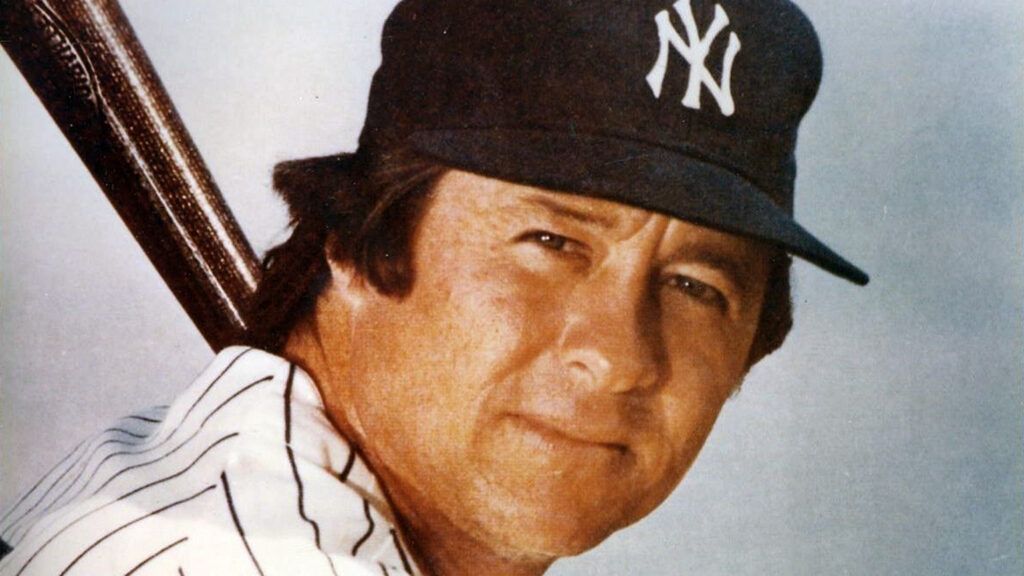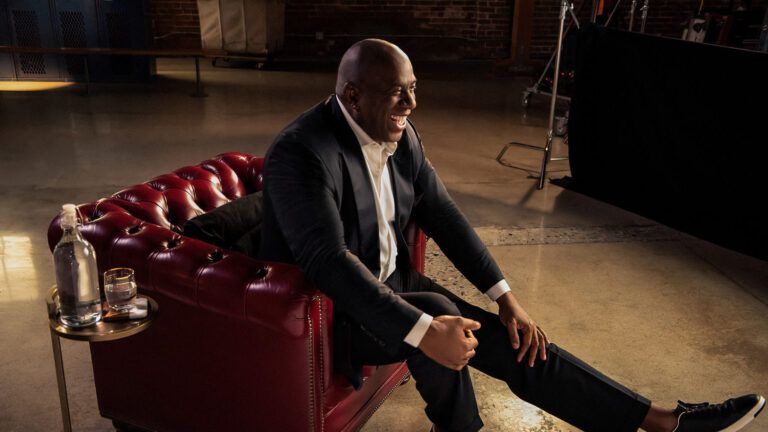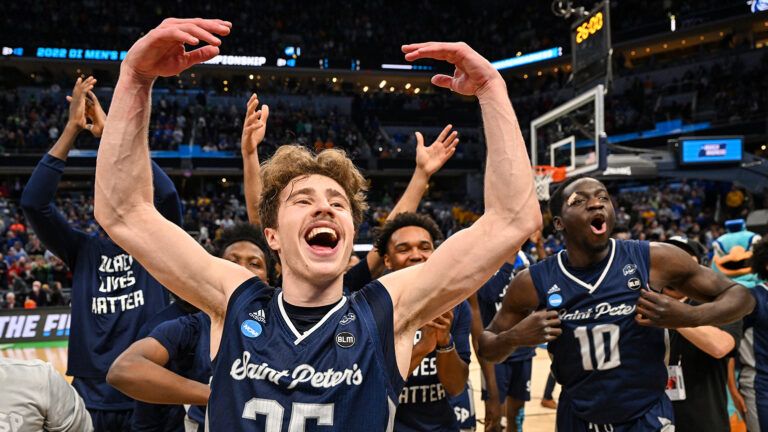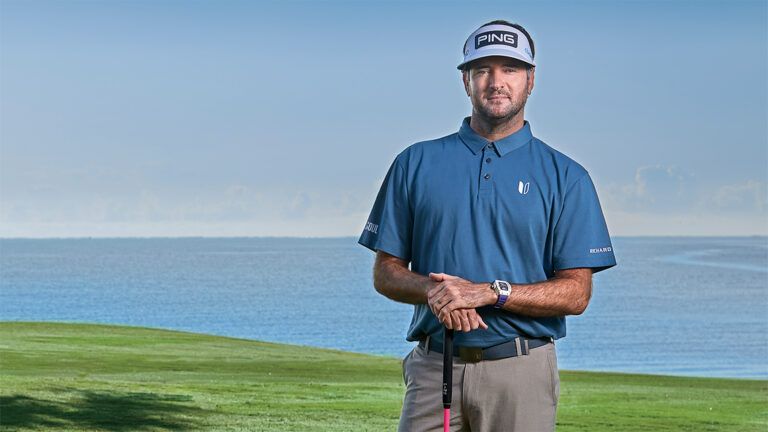Opening Day. There’s nothing like it, particularly at Yankee Stadium, one of the world’s most storied ballparks.
The rich history, the celebrities, the sold-out stadium packed with fans—all the promise of spring packed into one baseball game. I’ve been part of Opening Day at the stadium for 37 years—13 as a Yankees player, the last 24 as a Yankees broadcaster.
But I’ve never gotten chills like I did last April 2, when I stepped into the broadcast booth at the start of the third inning, high above the field. Certainly, no one expected me to be there that day, at least not officially to call the game.
Fans—over 55,000 of them—began to clap, some even chanted my name. Yankee players tipped their caps from the top step of the dugout.
But this time it wasn’t for anything I’d said from the broadcast booth or done on the field. They were cheering that I was simply in the ballpark. Four months earlier I’d been diagnosed with brain cancer. Doctors didn’t know if I’d ever even see another Opening Day.
I have played sports all of my life and have always prided myself on being tough—a guy who takes the field even when he’s hurting, and plays through the pain.
So last fall, when the headaches began, I went about my business. But the pain just grew worse and I felt exhausted too. I went to see my doctor. He ordered a series of tests.
On Christmas Eve 2006, while most people were getting ready to celebrate with their families, I was in the car driving home from the hospital with my wife, Kay. I had just undergone an MRI.
What’s wrong with me? I wondered. It just didn’t make any sense. Though I was 60 years old, I still worked out and stayed in shape. Then my cell phone rang. It was the doctor. I pulled over and punched on the speaker phone.
“Bobby, I have your results,” the doctor said. He paused.
“Tell it to me straight,” I told him.
“We found a tumor. I’m going to confer with some specialists and be back in touch with you to talk about the next step.”
Tears ran down Kay’s face and I pulled her close. She and I had known each other since I was 11 and she was nine. We’ve been married for four decades. She likes to tell people that she knows I love the Yankees, but she’s the home team. And she is—my teammate for life.
“We’ll get through this,” I assured Kay. “I’m not going anywhere.”
In bed that night, though, I wasn’t so sure. The doctors wanted to operate in two days. Their haste worried me. I remembered my brother DeWayne, how he lost his battle with lung cancer years ago.
Finally I did the only thing left to do. There in the darkness of my room, I prayed. For strength. For courage. For life.
The day after Christmas, my brother-in-law Dwaine came with Kay and me to Houston, Texas. My Oklahoma City doctor had recommended the head of the neurosurgery department at the University of Texas M.D. Anderson Cancer Center for my surgery.
But when we arrived at the cancer center, another doctor was there to greet me. “Dr. Sawaya is not in the clinic today,” he said. “I’m Jeffrey Weinberg.”
I eyed him suspiciously. Dr. Weinberg looked young, no older than my own kids.
“We can operate tomorrow, or you can wait till Dr. Sawaya returns,” he said. “I’ll leave the room and let you think about it for five minutes.”
“Life and death decisions made in minutes,” I said to Kay, after he left.
We phoned my hometown doctor. There was urgency in his voice. I really couldn’t wait another week, he told me.
My family came to Texas to be with me before the surgery. My son, Todd. My daughter, Tori. My in-laws. Dwaine. I won’t lie; we were all scared and worried. That night we huddled in a hotel room and talked about the good times and the hope that we had.
“There’s a Bible verse that has always helped me,” Dwaine volunteered, pulling a Bible from the bedside drawer and reading: Be strong and courageous. Do not be afraid. The Lord your God will go ahead of you. He will be with you; he will neither fail you nor forsake you.
I had always been a person of faith. I went to church, read my Bible and prayed. But this was like no other situation I had ever faced. Now I had no control over my life. There was nothing I could do to manage this but trust God.
The next day Dr. Weinberg led a team of surgeons through a six-hour procedure, removing a tumor about the size of a golf ball. When I came to, in the critical-care unit, I asked Tori for a mirror.
Minutes later, she was back with a compact. I opened it and looked at my reflection. My head was wrapped in a turban of bandages. I tilted the mirror higher. Behind my head were monitors flashing sets of numbers. I stared at them intently.
“What are you doing?” Kay asked.
“I want to watch the monitors,” I said.
“Bobby, you don’t know how to read them,” she said.
But I stared at those numbers, hard, like I was looking at a box score. Those numbers, I knew, told how I was doing in the same way a player’s batting average described how well he was hitting.
The next day, Dr. Weinberg came by with the pathology results. “Bobby,” he said, “the tumor was malignant.”
The wind went out of me. Cancer. I exchanged glances with Kay, then faced Dr. Weinberg. “What’s the next step?” I managed to ask.
“Chemotherapy and radiation treatments,” Dr. Weinberg said.
“Then I’ll be well?”
The doctor hesitated. “There is no cure,” he said at last. “We’ll treat it as a chronic disease. Life expectancy for this type of cancer averages about 14 months.” Whoa.
“Some people do better. Much better. You need to meet Dr. Hassenbusch, another neurosurgeon on staff here. About two years ago Dr. Hassenbusch had a tumor removed from his brain and had the same prognosis that you’ve been given. He’s been on a vaccine for over a year. It’s still in the experimental stages but we are seeing significant results.”
Kay squeezed my hand. “We’re in this together,” she whispered.
She was right, as she has so often been. There’s strength in team, I realized. In family, in my doctors, in the Lord. I remembered Dwaine’s verse: God had gone ahead of me. He was with me and would not forsake me.
A calm came over me. I don’t have to do this alone, I realized. For the first time since Christmas Eve I felt myself relax. My whole body just sort of let go.
Six weeks of chemotherapy and radiation was grueling. I couldn’t eat, my hair fell out, I felt plain lousy. The one good thing in all of this was that I met Dr. Hassenbusch. He gave me hope. Before I got sick, I awoke each day with all the things I needed to accomplish running through my mind.
But now Kay and I begin the day on the couch by reading a devotional. Then we pray and ask God to guide us.
I had been involved in baseball since Little League, and as a result, measured my life by spring training, the season, play-offs and off-season. I was determined to make it back to Yankee Stadium in April, back in time for Opening Day. Somewhere deep inside of me, I wanted, needed, to be in New York to share in that hope—the beginning of a new season.
We asked friends for prayer. The Yankees told the media about my illness.
One day in late January I heard Kay tapping on her computer keyboard. “Come over here, Bobby, and look at this,” she said.
I bent down over her shoulder and peered at the screen. She had logged on to a sports website. In big letters across the screen, it read, “Yes, a million.”
“What does that mean?” I asked.
“It means that a million people have logged on to this website to wish you well,” she said.
I pulled up a chair. It was true. More than a million people had posted messages to say that they were praying for me. Even Red Sox fans! One man wrote that he had never prayed before, but was starting now, in hopes of my recovery. What a powerful message!
Several shared how they had battled cancer or had loved ones with brain tumors. They wanted to talk to someone who understood. They sought me out not because I’d been a sports hero, but because they needed someone who could relate to what they were going through.
Not only was a new season on the horizon for the Yankees, but I too had entered a new season. Certainly not one I signed up for, but I felt secure in the knowledge that God had gone before me. Often that meant sharing the peace I had found with other cancer sufferers.
Opening Day, April 2, I walked into Yankee Stadium. Yogi Berra, Yankee captain Derek Jeter, manager Joe Torre and the rest of the team raced over and hugged me.
But that was nothing compared to the huge standing ovation I got from the fans. When I got to the broadcast booth, the crew put my picture up on the video screen out in right-center field.
Everyone in Yankee Stadium, it seemed, rose to their feet. Tears pooled in my eyes. I got so choked up, I couldn’t speak, and that’s not like me.
I thought of Kay, my family, Dr. Weinberg, Dr. Hassenbusch and all of the people who had said they were praying for me. And most of all, I thought of that Bible verse Dwaine had read aloud in my hospital room. I stood and waved to the crowd.
Yes, I know now, the good Lord will go before us. He will not fail us.






